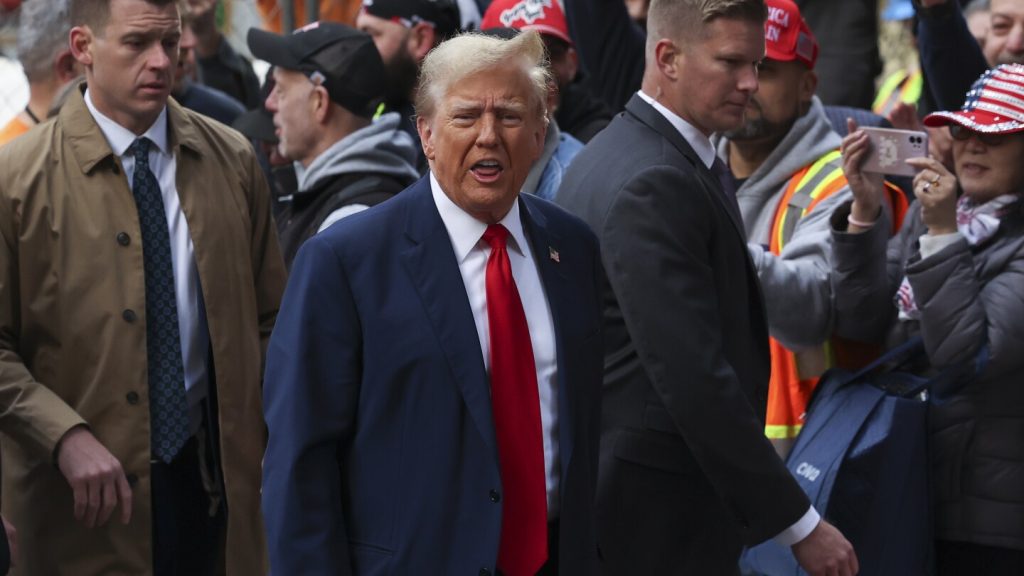Former President Donald Trump is back in a New York City courtroom as his hush money trial resumes. At the same time, the U.S. Supreme Court is hearing arguments over whether he should be immune from prosecution for actions he took during his presidency. Trump had requested to skip his trial for the day to attend the Supreme Court session, but the judge denied his request. The trial revolves around a hush money scheme allegedly intended to prevent damaging stories about Trump from surfacing during the 2016 campaign.
The proceedings in the New York City courtroom and the U.S. Supreme Court are intertwined in a legal and political puzzle with implications for both Trump and future presidents. Trump is facing 34 felony counts in the hush money case, related to falsifying business records for payments meant to prevent embarrassing stories from being revealed. The Supreme Court case will determine if a former president can be prosecuted for conduct during their time in office, which could have lasting implications for future presidents. Trump is making another bid for the White House while trying to get himself out of legal jeopardy.
In the New York trial, Trump faces more witness testimony from David Pecker, former publisher of the National Enquirer and a long-time friend of Trump. Pecker has testified about leveraging connections to suppress damaging stories about Trump, including purchasing the silence of a doorman. The trial also involves allegations of Trump violating a gag order imposed by the judge, with prosecutors claiming he made public statements about witnesses against him. The outcome of the trial could impact Trump’s potential bid for the presidency again, as he faces the possibility of a four-year prison sentence if found guilty.
The Supreme Court arguments are related to charges in federal court in Washington, where Trump is accused of conspiring to overturn the 2020 election results. Lower courts have ruled that Trump cannot claim immunity for actions that allegedly interfered with the election. The Supreme Court’s decision will determine if Trump can be prosecuted for these actions, and whether there will be time to hold a trial before the November election. Trump’s legal battles in both New York and Washington have significant implications for his political future and the precedent it sets for presidential immunity from criminal prosecution.
The judge overseeing the New York trial may decide whether to hold Trump in contempt for violating the gag order, with a potential fine attached. Trump has been dismissive of the potential fines, stating that the gag order infringes on his constitutional rights. Despite the legal challenges and potential consequences, Trump maintains his innocence in the face of the charges against him. The trial in New York is the first of four criminal cases against Trump to go before a jury, and the verdict could have far-reaching implications for both him and the American presidency. The legal battles continue as Trump navigates his way through multiple court cases and the possibility of another presidential bid.


